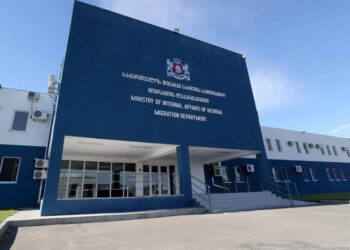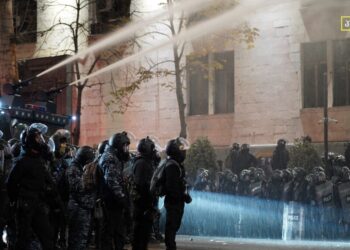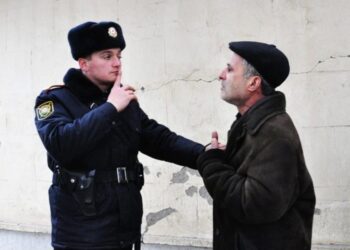In Georgia’s Kvemo Kartli region, something powerful is happening. Not in the halls of parliament or city-based offices: it’s unfolding in village meeting rooms, kindergartens, youth clubs, and community centers. In Kvemo Kartli, local people are stepping forward to shape the services that affect their lives the most.
Funded by the European Union and implemented by CENN with support from partner organization KKM, the Empowering CSOs to Promote Inclusive and Green Post-COVID Recovery in Multi-ethnic Kvemo Kartli Region Project is helping local communities strengthen democracy from the ground up. With a budget of €1,111,110 and a timeline stretching from January 2022 to December 2025, the project is active in six municipalities: Marneuli, Tetritskaro, Dmanisi, Gardabani, Bolnisi, and Tsalka.
The goal? To develop local civil society organizations, expand participatory democracy, and improve the quality and accessibility of social services, especially in communities often left behind.
“With the support of the EU, we have helped train specialists, create fully equipped centers for them to work in, and brought to these communities the beginnings of community support networks,” CENN’s Nino Tevzadze tells GEORGIA TODAY. “Now, people in smaller towns and villages will finally have access to services that used to only exist in big cities like Tbilisi.”
Strengthening Civil Society from the Ground Up
For CENN, the ‘Empowering CSOs to Promote Inclusive and Green Post-COVID Recovery in Multi-ethnic Kvemo Kartli Region Project’ began with a comprehensive Civil Society Organizations Capacity Building Program (CDP), which included:
1. Assessing the needs and capabilities of local organizations;
2. Providing training, coaching, and one-on-one mentoring;
3. Offering consultations with Georgian and international experts;
4. Organizing study visits to the Czech Republic to learn from European best practices, and;
5. Launching the Young Professionals Program (YPP) to engage the next generation of civic leaders.
At its heart, the project is about helping local people shape the communities they live in. It focuses on three main things: giving civil society organizations the tools and training they need to grow stronger, encouraging real citizen involvement in local decision-making, and funding grassroots initiatives that make a real difference in people’s lives.
The goals are:
First, to strengthen civil society so that community groups are better equipped to offer high-quality social services, and to speak up for vulnerable groups who need support the most. Second, to create new ways for communities to work with their local governments, making sure services are transparent, accountable, and built around what people actually need, especially following the challenges of the pandemic. And third, to give local changemakers the funding and support they need to design and deliver services that truly respond to the unique needs of their towns and neighborhoods.
A total of six community-led projects were launched across Kvemo Kartli, each responding to specific local needs:
• An Early Childhood Development Support Center in Tetritskaro;
• A youth-led initiative to engage in and improve social services in Gardabani;
• A project focused on increasing access to vital services for ethnic Azerbaijani children with disabilities;
• A program in Tsalka supporting parents and caregivers of children with disabilities or living in single-parent households;
• The first-ever day center for children with disabilities in Dmanisi, and;
• An intergenerational tech and learning hub in Dmanisi that connects older residents with local youth through shared skills and experiences.
“We’re not just helping civil society get a seat at the table: we’re helping them lead the conversation,” says Nino Tevzadze. “By working closely with local governments and grassroots groups, we’re strengthening local democracy from the ground up. Everything we’re doing, from training to funding, is about building communities that can rely on themselves and advocate for what they need. The social services we’ve helped develop didn’t come from a top-down plan; they were shaped by the real, everyday needs people told us about. And thanks to EU support, we’ve been able to give local groups the funding they need to turn those ideas into action: to expand services or make existing ones work better for everyone.”
Let’s explore the projects further.
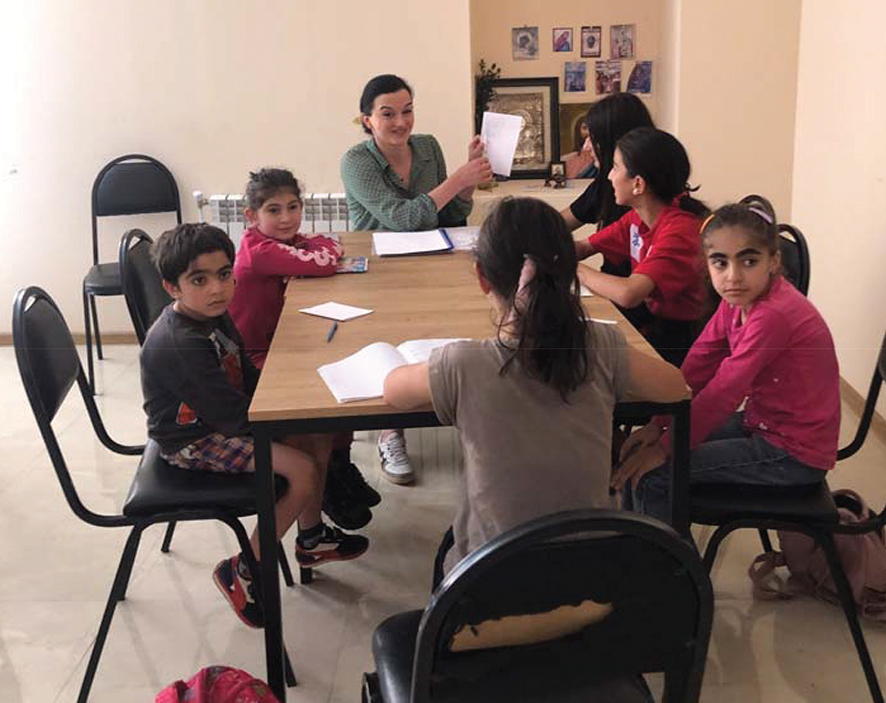
The Tetritskaro Early Childhood Development Support Center
Project period: 24.06.2024 – 01.06.2025
Goal: To promote the harmonious mental and physical development of children living in the municipality by creating and increasing access to early development support services for children aged 0-7 living and registered in the municipality.
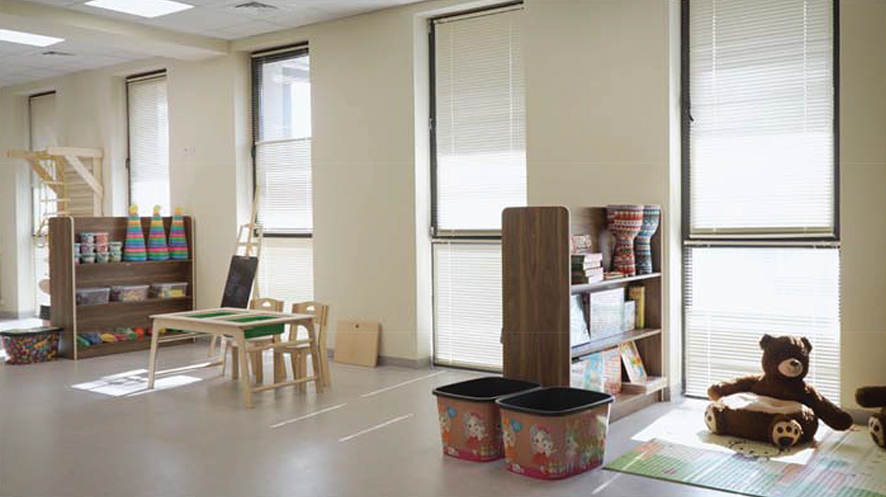
Located in Tetritskaro Municipality, the freshly renovated Early Childhood Development Support Center focuses on children aged 0–7, coming fully equipped with sensory toys, climbing frames and even a trampoline to stimulate and entertain the beneficiary children. It’s the first of its kind in the region, and aims to identify developmental delays early and offer professional intervention. Staff include two early intervention teachers, a psychologist, and a psychologist’s assistant.
“The initial screening process takes place with the parents’ involvement,” says Nino Tikurishvili, Executive Director of the Tetritskaro Local Action Group. “We work with both the child and their caregivers. When an intervention teacher sees that formal intervention is no longer needed, the parent is guided and prepared to continue supportive practices at home.”
All kindergartens in the municipality, 16 in total, are participating in an outreach effort that helps teachers and families identify early signs of developmental delays. Informational sessions with medical workers have also begun, and a dedicated intake and evaluation process is being piloted with families. The Early Childhood Development Support Center is currently undergoing certification to become a recognized service provider, and soon it will be welcoming up to 20 local children.
“This is a really sensitive area we’re working in,” Nino Tevzadze tells us. “When it comes to people with special needs, there’s often hesitation: families don’t always feel comfortable talking about it. That’s why early conversations with parents and teachers are so important. If you can spot developmental issues early, you can intervene early, and that can make all the difference.”
The Martkopi Youth Center: Young People Taking the Lead
Project period: 26.06.2024 – 31.03.2025
Goal: To improve the quality of social service provision in Gardabani Municipality; to promote and encourage an increase in the number of personnel in shortage professions.
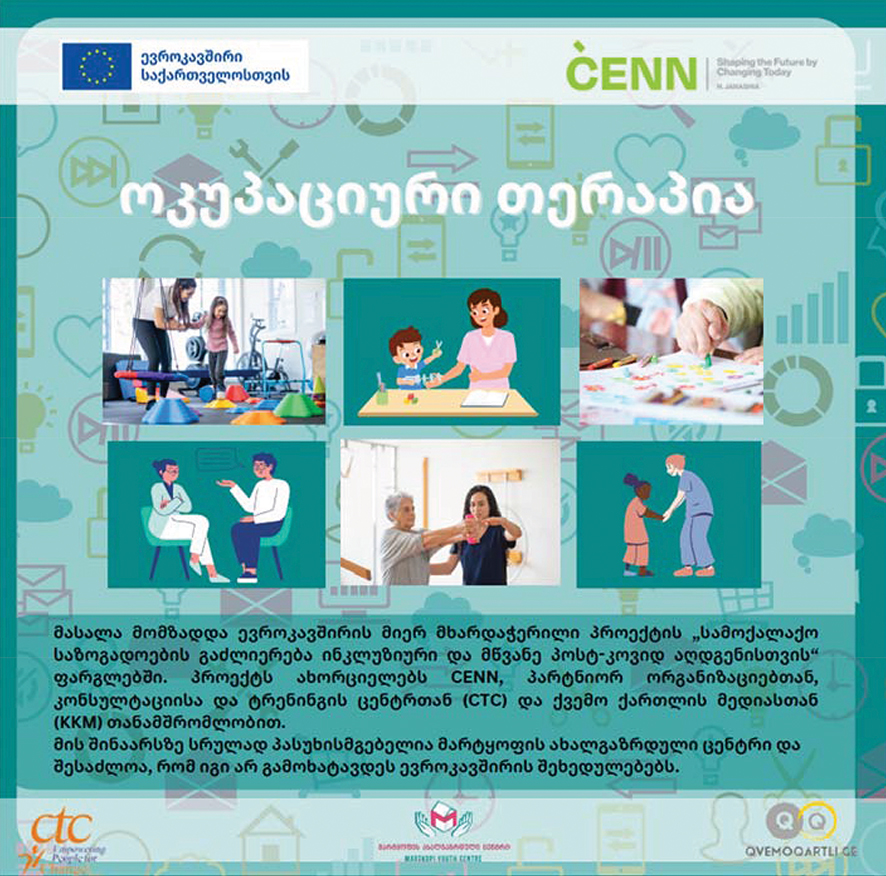
Gardabani’s youth are stepping up through an initiative led by the Martkopi Youth Center. Their project encourages young people to consider careers as social workers or occupational therapists: two critical but underrepresented fields in rural areas.
Twenty-one youth leaders organized 14 information sessions, reaching 129 high school students across local villages. The team also created and shared video content about the importance of social work, garnering more than 7,000 views online. They initiated a petition urging the local government to co-finance higher education for young people in these professions and conducted advocacy meetings with municipal representatives.
The result is a model of youth-led civic activism aimed at solving real local problems.
“Social work and intervention roles aren’t usually on young people’s radar, so we focused on showing them how important and impactful these careers can be, and that they’re a real path to employment,” CENN’s Nino Tevzadze notes. “We took them to Tbilisi State University to explore the social services programs, hoping they’d see there’s pride in this kind of work. Helping your own community isn’t just a job: it’s something to be proud of.”
Care Georgia: Supporting Azerbaijani Children with Disabilities
Project period: 27.09.2024 – 27.02.2025
Goal: Improving the quality of life of ethnic Azerbaijani children with special needs living in the region by increasing access to the services they need.
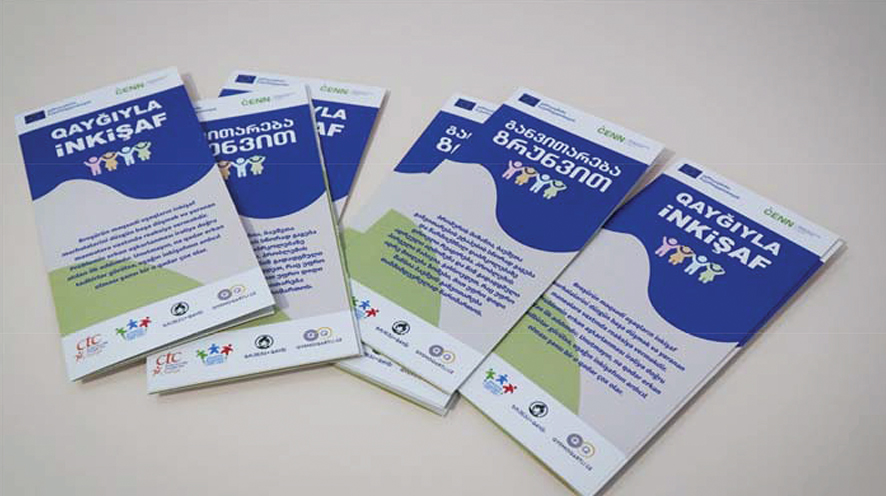
The Supporting Azerbaijani Children with Disabilities initiative addresses a crucial gap in service access for ethnic Azerbaijani children with disabilities in the Kvemo Kartli region. Care Georgia organized targeted outreach in villages, meeting face-to-face with caregivers and providing informational leaflets in Azerbaijani.
Seven Azerbaijani-speaking specialists were trained in early childhood education and developmental intervention. These professionals are now providing much-needed support throughout the region, and helping parents navigate the available services.
“The trust we’ve built is rooted in language and familiarity,” said one team member. “We made sure our specialists could speak to families in their mother tongue, and that made all the difference in engagement.”
The campaign not only provided direct support, but also raised awareness about disability rights and inclusion within the broader community.
“We’ve partnered with local CSOs, such as Care Georgia, because they have those direct, trusted relationships in the villages,” says Nino Tevzadze. “Their face-to-face work with families really mattered. Because they’re from the same communities, speak the same language, and are familiar faces, it helped build trust. It wasn’t immediate, it took time, but the difference it’s made is clear.”
Together for Real Change: Empowering Mothers
Project period: 01.05.2024 – 20.08.2025
Goal: Socio-economic empowerment of parents/caregivers of children living alone and/or with disabilities, and promotion of their rights.
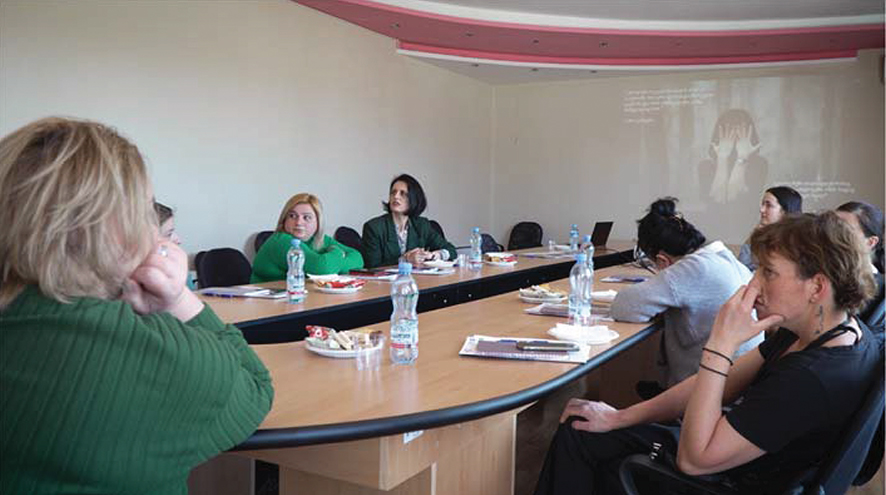
Operating in Tsalka Municipality, the Together for Real Change project empowers parents, especially single mothers and caregivers of children with disabilities. Within the project, 10 women have received psychosocial training, parenting support, and individual consultations with mental health professionals.
The program also employs nannies to provide at-home care for children, giving mothers time to pursue education, employment, or simply rest.
“Many of these women hadn’t had the opportunity to work for years,” Nino Tevzadze says. “With emotional support and childcare, they’re starting to see new possibilities.”
The economic impact is also already visible: several participants are now actively seeking employment, supported by a new sense of agency and confidence.
“Parents of children with special needs don’t just need support: they need to feel empowered, like they can actually manage what they’re facing. That’s why we offer training, emotional support, and professional consultations,” Nino tells us. “But it’s not just on us. The government has a responsibility too: not just to create social services, but to make sure people, especially vulnerable groups and ethnic minorities, know these services exist and understand how to access them.”
Dmanisi’s First Day Center for Children with Disabilities
Project period: 28.09.2024 – 01.07.2025
Goal: Increasing access to basic social services for ethnic minority and socially vulnerable children and youth with disabilities in Dmanisi, an area densely populated with ethnic minorities.
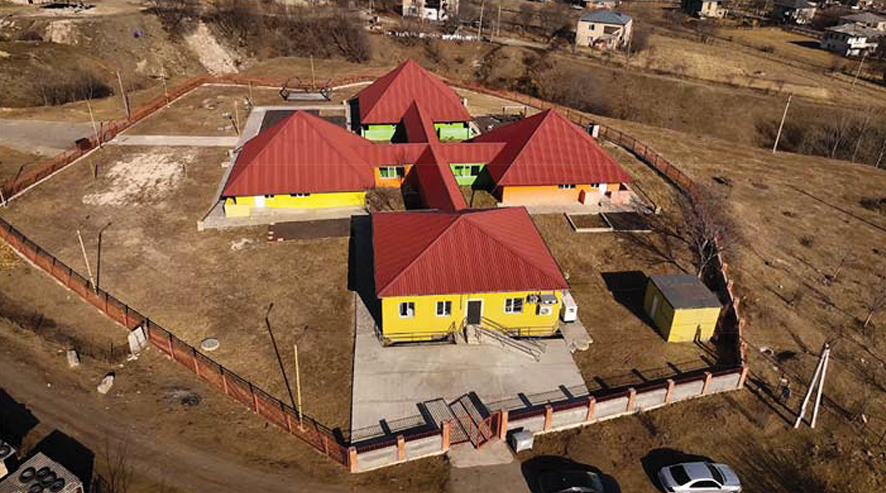
The introduction of the Day Center for Children with Disabilities marked a major milestone for Dmanisi Municipality, where no comparable services previously existed. Housed in a fully renovated 180-square-meter space provided by the municipality, the center is now officially registered and offers structured programming for up to 20 children aged 6–18 from ethnic minority and socially vulnerable backgrounds.
Programs include educational support, recreational activities and engagement with families, while training is underway to include therapeutic services. Local staff have been trained in inclusive education practices, and families are involved in shaping the services to meet their needs.
“This center has changed the landscape for vulnerable children here,” said Maia Bibileishvili, head of the project implementing organization ‘Child, Family and Society.’ “This is not just a place to go—it’s a place to grow, and as we identify new needs, we hope to be able to expand the scope of services we can offer them.”
A Technological Bridge between Generations
Project period: 02.05.2024 – 31.03.2025
Goal: Creation of an intergenerational mutual support social service that will help the elderly and socially vulnerable adolescents living in the municipality to improve their socialization, knowledge and skills.
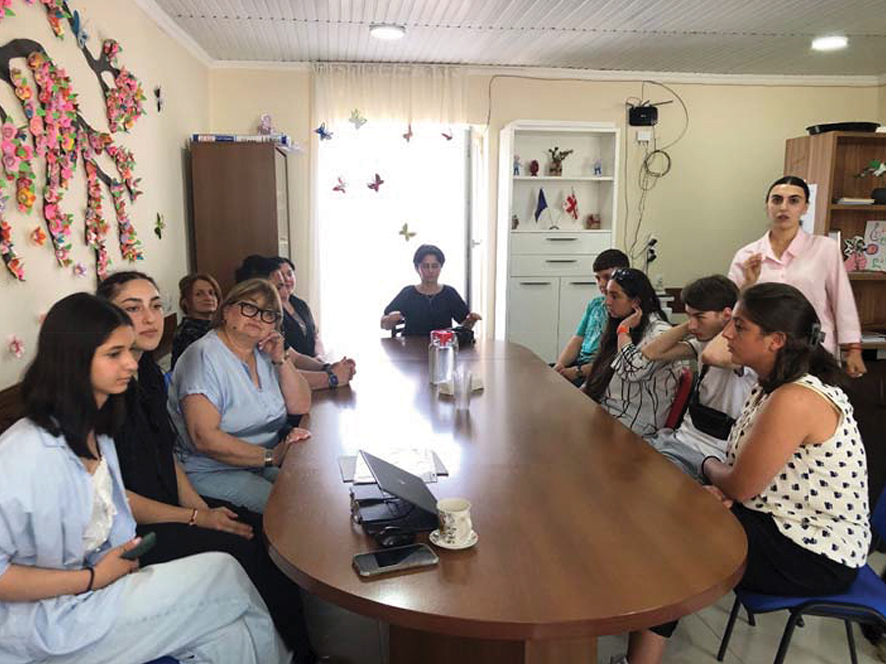
This Technological Bridge between Generations project connects seniors with socially vulnerable youth in Dmanisi. Funded by the EU through CENN, the Association of Internally Displaced Women ‘Consent,’ with the support of the local municipality body and Support House, introduced the ‘60+ Day Center’ service through the ‘Technological Bridge’ project to bring together two generations through shared activities, learning, and mutual care.
Within the frames of the ‘Technological Bridge’ program, 10 youth participants, many of whom are from low-income families, received digital skills training, including coding and basic computer literacy. This they then shared with the older members of the community over the duration of the program. The process required patience, empathy, and communication—skills just as valuable as the technical ones. In return, five older residents with teaching experience volunteered to tutor the children in school subjects.
Nana Mikiani, a retired teacher with 39 years of experience, six of them in Dmanisi, the remainder in Tbilisi, describes the difference it has made: “If it weren’t for this program, many of these socially vulnerable children would be in a much harder place. We give them educational support; but, more than that, we’re offering emotional support too.
“Some of these children come from homes where there’s not enough food, where they rely entirely on the government for the basics. Under those conditions, how can we expect them to thrive? But here, they’ve started to open up and grow in confidence.”
She highlighted in particular the progress they have seen among the Azerbaijani participants: “Their studies have improved so much this past year, especially in Georgian. A big reason for that is the way we work—in small groups of up to 10, not the large classes they’re used to in school. That individual attention makes a huge difference.”
Over time, the center has become more than a place for schoolwork: it’s a true community, seeing the participants celebrating birthdays and holidays together and going on trips around the country. Together, they co-organize community events like concerts, crafting sessions, and theatrical performances.
“We’ve become a tight-knit group. It’s not just about the school subjects: it’s about loving these children and helping them however we can. We’ve seen friendships grow, skills blossom, and barriers come down,” says Ekaterine Okriashvili, Support House manager.
Looking ahead, Ekaterine says she is committed to keeping the momentum going:
“To continue this work, we’re exploring every possible form of support: businesses, young volunteers, even small material donations. The CENN (EU) grant was a big step forward for us, but this is only the beginning. We’ll find a way to keep this project alive. It means too much to too many people.”
Building Long-Term Change
While these projects are already showing results, the vision is long-term. The EU funding helped launch these services, but sustainability depends on ongoing local support from municipalities and the private sector.
“We trained specialists, we set up the centers,” CENN’s Nino Tevzadze says. “Now we hope the government and municipalities will keep supporting them.”
She highlights the importance of awareness: “The government must not only create social services, but also ensure that vulnerable people, especially minorities, know they exist and understand how to access them.”
Looking ahead, CENN and local partners plan to approach businesses to incorporate support for such services into their corporate social responsibility (CSR) strategies.
“We want communities to feel empowered to demand loyalty from businesses. These are not handouts: these are investments in a stronger, more inclusive society.”
A New Model for Civic Participation
These projects are more than “quick fixes” – they are proof that civil society can lead systemic change. By working hand-in-hand with municipalities, families and local experts, this EU-funded civil society development project is transforming how Georgians experience public services.
“We’ll stay connected to our beneficiaries even after the project ends,” Nino says of CENN’s team. “Our work in the regions will go on. Because at the end of the day, this is for them—the people who live here.”
By Katie Ruth Davies


